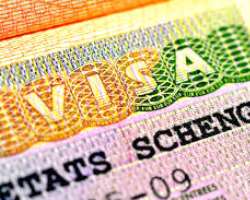Nigerians To Pay More For Schengen Visa

As from February 2020, Nigerian citizens will pay €80 in place of €60 as is currently obtainable in procuring a Schengen Visa from Nigeria.
Children are also affected in the new increment as they will pay €40 instead of €35 that is currently applicable to them.
Begining from Monday, February 2, 2020, Nigerians will also experience several changes in terms of Schengen Visa application procedures, rules and benefits.
Due to the implementation of the Updated Schengen Visa Code, adopted by the EU Council in June 2019, all representative missions of the Schengen Countries located abroad are obliged to apply the new rules, including the ones in Nigeria.
“Since Regulation (EU) 2019/1155 of the European Parliament and of the Council of 20 June 2019 amending Regulation (EC) No 810/2009 establishing a Community Code on Visas (Visa Code) is binding in its entirety, and is directly applicable in all EU Member States in accordance with the Treaties, all Schengen countries, including Lithuania, will apply it from 2 February 2020,” an official from the Information Monitoring and Media Division of Lithuania explained for schengenvisainfo.com.
In the new regulation, Nigerian applicants will be expected to submit an application up to six months in advance of their trip in place of the present three months. In the new regime, applicants will foresee a harmonized approach to the issuing of multiple entry visas with lengthier validity to regular travelers with a positive visa history.
According to SchengenVisaInfo.com, Member States that are not represented in Nigeria in terms of visa administration are now obliged to cooperate with external service providers in order to facilitate visa application for travelers.
The external service providers are allowed to charge a service fee, which cannot be higher than the visa fee. This means that Nigerians applying through an external visa service provider may have to pay up to €160 per visa application if the external service providers set the maximum service fee permitted, which is €80.
In addition, the updated Visa Code introduces a mechanism that assesses whether the visa fees should change every three years. Another mechanism that will use visa processing as leverage will be introduced in a bid to improve cooperation with third countries on readmission.
According to Gent Ukëhajdaraj from https://www.schengenvisainfo.com, due to this mechanism, the fees may increase even to €160 if the EU authorities deem it necessary.
“A visa fee of €120 or €160 will apply to non-cooperative third-countries, in cases when the EU Commission considers that action is needed in order to improve the level of cooperation of the third country concerned and the Union's overall relations with that third country,” Ukëhajdaraj explains, adding that this provision shall not apply to children under 12 years old.
The mechanism may also shorten visa validity, and introduce prolonged visa processing periods.
Statistics by https://www.schengenvisainfo.com show that in 2018, Schengen embassies and consulates in Nigeria processed 88,587 visa applications, 44,076 of which were rejected thus marking the highest rejection rate of 49.8% among all third-countries in need of visas.
France was the top favorite country for visa submission, as 33,308 of the applications submitted in Nigeria were for Schengen visas to France, followed by Italy with 13,295 and Germany with 10,847 applications.
In terms of expenditures, in 2018, Nigerians spent €5,315,220 in visa applications to Europe, €2,644,560 of which money was spent by applicants who had their visas rejected.
